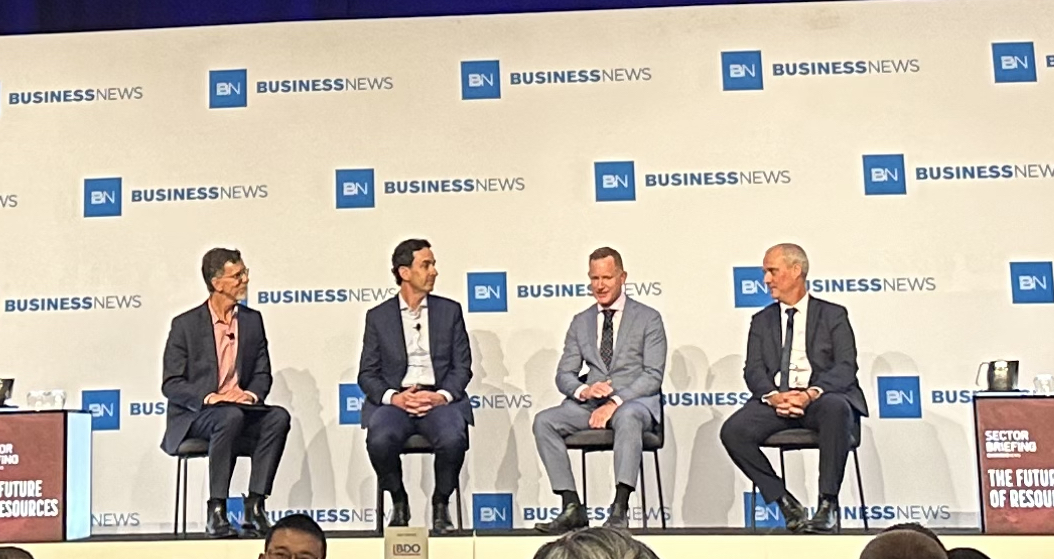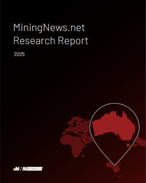The flight of capital out of Australia and into competing countries remains a warning for some of Australia's biggest mining bosses ahead of the upcoming Federal election.
Speaking at a Business News sector briefing last week, Rio Tinto managing director of port, rail and core services Richard Cohen, Northern Star Resources managing director Stuart Tonkin, and BHP iron ore boss Tim Day agreed that Australia's attractiveness as a premier mining investment jurisdiction was under threat.
While no mining heavyweight wanted to link their warning to a specific party or political candidate, the overarching theme was simple: higher levels of regulatory red tape threaten to spark a flight of investment capital away from Australia.
"Australia has to put a lot of thought into its future," BHP's Day said.
YOU MIGHT ALSO LIKE
"The decisions we make today are going to play out for decades, so we've got to make sure that the policy settings that are going through are going to be conducive to investment and competing."
He argued that it would take several years for the effects of new policy decisions to be felt in the mining space, but the flip side of this issue was also true: if Australia were to lose its reputation as a safe investment space it would take decades to win it back.
"And you have a lot of international players aggressively playing in the space," Day said.
He pointed to the likes of Argentina, Canada, Chile and the United States as foreign jurisdictions that were working hard to build out their mining industries.

The investment opportunities turning investors' heads away from Australia and to North America and Europe were detailed this week by MNN's Dryblower, who shared similar concerns about the future of Australia's government support for the mining industry.
"Mines, once dug, can't migrate, but mining companies certainly can, and right now, a lot of Australian miners are wondering whether the incentive for exploring in Australia is fading and it's time to make the move north to countries that welcome mining investment," Dryblower wrote.
Australia could learn a thing or two from Africa
While the developing mining industries of other nations certainly play a part in taking away from Australia's mining competitiveness, the country's own policies could be causing the most damage.
Experienced ASX mining company exec and director at private services firm CRC Resources Group, Colin Carson, told MNN he had personally experienced the headaches that come with regulatory red tape for exploration companies.
He said just getting an exploration grant in Western Australia, for example, took years.
"It took my company two years to get an exploration licence granted, because for unexplained reasons one native title group changed its lawyer three times during the process," Carson explained.
"The terms of the agreement weren't controversial, and the final agreement was as suggested to the first lawyer, but the time delay exposed us to changes in market conditions. Quite often, there is more than one native title claim over an EL area, so negotiations are required with multiple groups."
He said this was just the first hurdle: once the exploration licence was granted, "the main native title industry gravy train takes over".
Just completing heritage surveys was a long and costly process for Carson; he claimed anthropologists and archaeologists charged "a fortune" to carry out the surveys, and "a select group of native title parties" made good money attending the survey.
"It isn't uncommon for a small survey to permit a short drill program to cost over A$100,000," Carson said.
"They have to wait for the consultants and native title parties to be available, which could take more than six months. Meanwhile, the explorer is covering its own overheads, so the real cost of the delay is significant, and investors lose patience … forcing the share price down."
With costs high and progress slow, he iterated that the whole process made investors keen to look elsewhere to deploy their capital.
Carson was an executive director and West Africa-focused Perseus Mining between 2003-2019, and he is a director of industry body Australia-Africa Mining and Energy Group.
He said with investors and explorers shifting focus to countries where exploration and mining was encouraged, "Australia would do well to adopt the usual African model".
That is, limited bureaucracy around exploration, frequent community engagement, and royalties set aside to develop infrastructure and health and education opportunities for communities in the wider area.
Africa, and West Africa in particular, is wrought with corruption, military coups and illegal mining, often placing it among the highest-risk jurisdictions for mining investment — as per Mining Journal Intelligence's World Risk Report 2024.
However, Carson argued that these risks notwithstanding, the regulatory processes in Africa often made exploration and mining quicker and cheaper.
"We're scaring money away"
Rio Tinto's Cohen said the forecast demand for iron ore out of Australia remained "enormous" and required a huge investment.
"What you need for that is effective and efficient policy and a stable platform to go forward," Cohen said.
"You need to remove the roadblocks, and you need to make us competitive. That's a role for government, and it's a role for us."
Northern Star's Tonkin argued that mining and energy policy needed to be bipartisan because the electoral cycle was too short to make policy decisions that would impact the resources industry for decades.
He said even with policies designed to improve current systems, it took years for miners and explorers to adapt to and adopt any new piece of legislation.
"The bubble that we're in here in Australia in such a special one," Tonkin said.
"We're scaring people off from supporting the industry in Australia … and we're scaring money away.
"There are plenty more places in the world to go to work for businesses. We want to attract investment."

























